Forums » General » Ford EcoSport Common Problems: An In-Depth Overviews
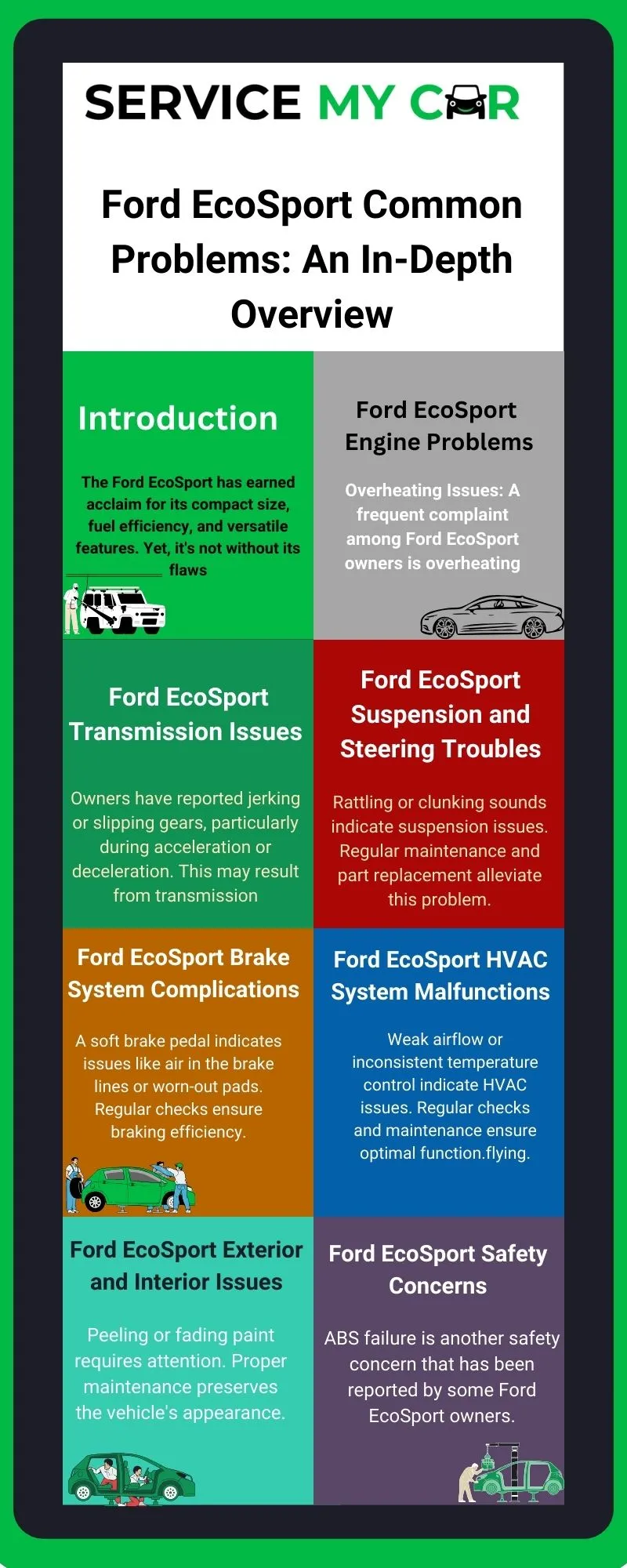
The Ford EcoSport has garnered attention for its sleek design, compact build, and affordability. However, like any vehicle, it’s prone to issues. This comprehensive guide delves into the common problems faced by Ford EcoSport owners, covering everything from engine woes to electrical hiccups. Let’s explore the world of Ford EcoSport common problems.
1. Introduction

The Ford EcoSport has earned acclaim for its compact size, fuel efficiency, and versatile features. Yet, it’s not without its flaws. This guide delves into the common problems EcoSport owners may encounter, offering insights into potential solutions.
2. Ford EcoSport Engine Problems
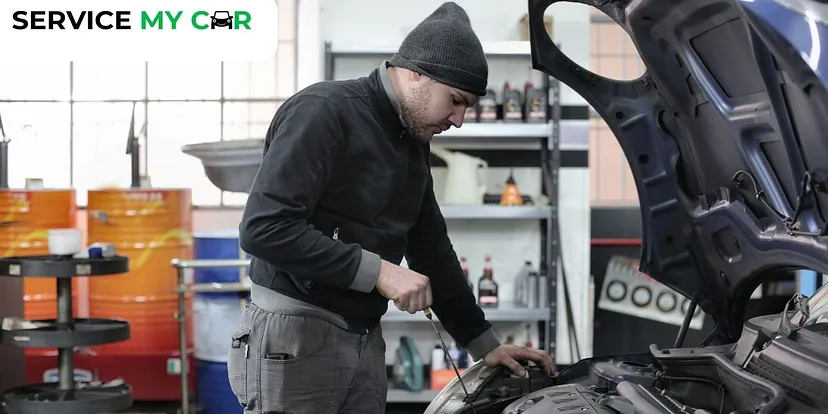
Overheating Issues: A frequent complaint among Ford EcoSport owners is overheating. This can stem from issues like a malfunctioning thermostat, radiator problems, or a faulty water pump. Timely attention is crucial to prevent engine damage.
Cylinder Misfires: Some owners experience cylinder misfires, leading to rough engine performance. Faulty spark plugs, ignition coils, or fuel injectors often trigger this issue. Regular maintenance can prevent misfires.
Oil Leaks: EcoSport owners have reported oil leaks, often caused by deteriorated gaskets, loose oil filters, or worn-out engine components. Swift action is necessary to maintain engine health.
3. Ford EcoSport Transmission Issues
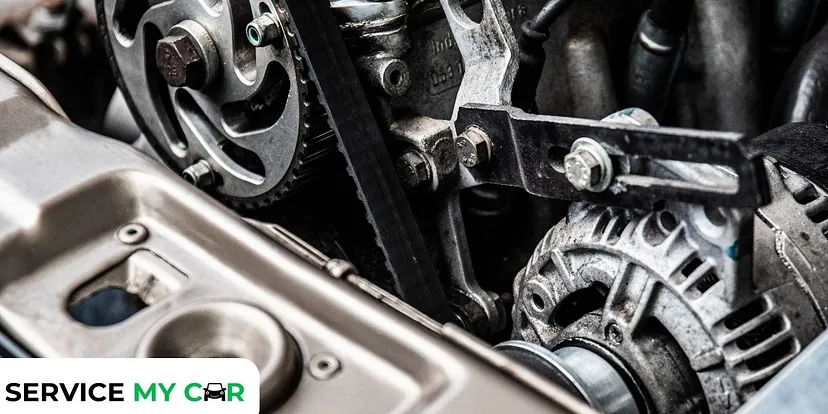
Jerking or Slipping Gears: Owners have reported jerking or slipping gears, particularly during acceleration or deceleration. This may result from transmission fluid issues or worn-out clutch plates. Regular maintenance mitigates these problems.
Delayed Engagement: Delayed engagement, where the transmission takes time to shift gears, is another concern. Low fluid levels or a faulty solenoid could be culprits. Timely maintenance resolves this issue.
Transmission Fluid Leaks: Leaks can occur due to damaged seals or gaskets. Addressing leaks promptly preserves the transmission system’s integrity.
4. Ford EcoSport Electrical Problems
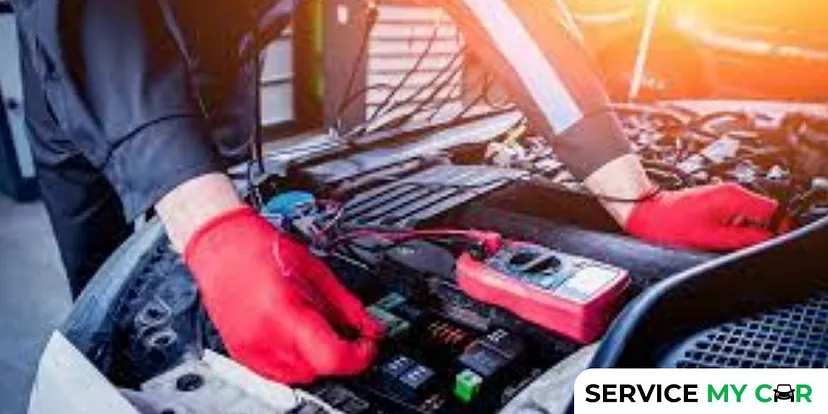
Battery Drainage: Some owners face battery drainage, often caused by faulty electrical components. Regular checks and maintenance prevent this issue.
Malfunctioning Infotainment System: Issues like unresponsive touchscreens or radio glitches are common. Updating software and addressing faulty components resolves these problems.
Faulty Wiring: Faulty wiring can cause intermittent power loss or sensor malfunctions. Proper diagnosis and repair prevent electrical issues.
5. Ford EcoSport Suspension and Steering Troubles

Noisy Suspension: Rattling or clunking sounds indicate suspension issues. Regular maintenance and part replacement alleviate this problem.
Loose Steering: Loose steering or wobbly wheels require immediate attention. Addressing worn-out components ensures safe driving.
Premature Tire Wear: Improper tire inflation or misaligned wheels lead to premature tire wear. Regular rotation and alignment prevent this issue.
6. Ford EcoSport Brake System Complications
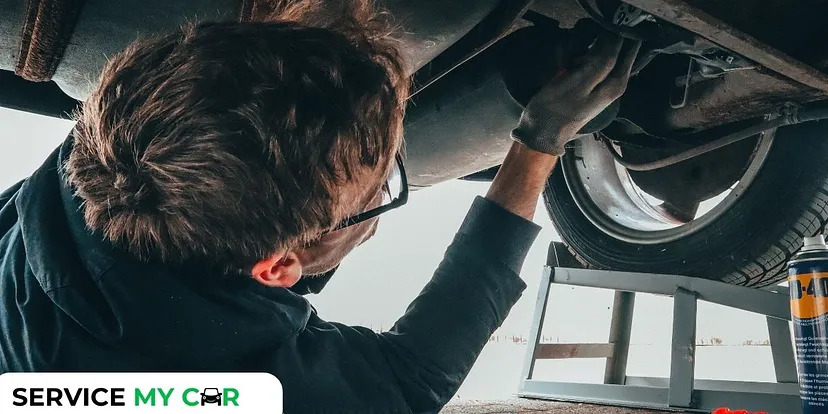
Spongy Brake Pedal: A soft brake pedal indicates issues like air in the brake lines or worn-out pads. Regular checks ensure braking efficiency.
Brake Noise: Squealing or grinding noises signal worn-out brake pads or damaged components. Timely replacements resolve this issue.
Brake Fluid Leaks: Addressing leaks promptly maintains optimal braking performance.
7. Ford EcoSport HVAC System Malfunctions
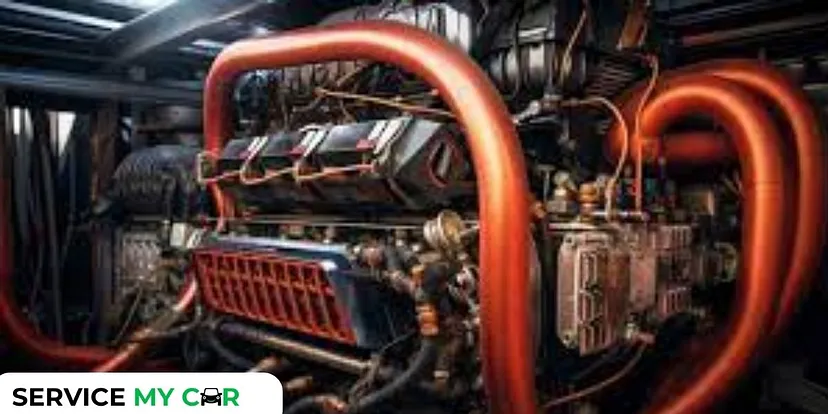
Inadequate Cooling or Heating: Weak airflow or inconsistent temperature control indicate HVAC issues. Regular checks and maintenance ensure optimal function.
Blower Motor Failure: Lack of airflow could signal blower motor failure. Timely replacements keep the system running smoothly.
AC Compressor Issues: Reduced cooling performance may indicate AC compressor problems. Regular checks and repairs resolve this issue.
8. Ford EcoSport Exterior and Interior Issues

Paint Quality Problems: Peeling or fading paint requires attention. Proper maintenance preserves the vehicle’s appearance.
Water Leakage: Faulty seals or weather stripping cause water leaks. Timely repairs prevent interior damage.
Seat Material Wear: Regular cleaning and maintenance prevent seat material wear.
9. Ford EcoSport Safety Concerns
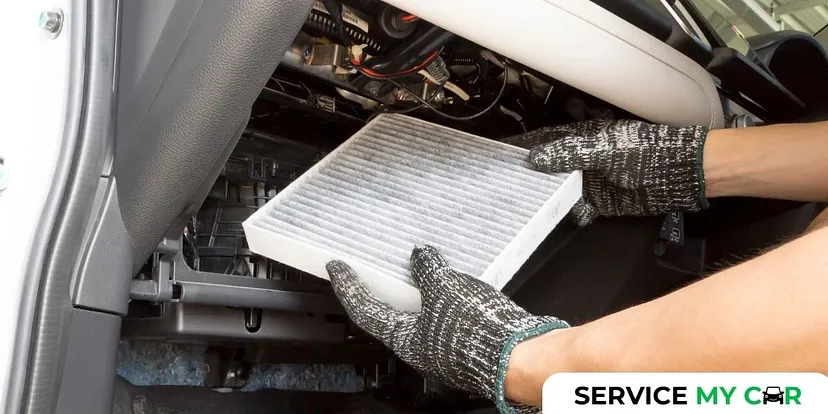
Airbag Malfunctions: Some owners have raised concerns about airbag malfunctions. This may include instances where airbags fail to deploy during a collision or deploy unexpectedly without any impact. Such malfunctions could be attributed to faulty sensors, wiring issues, or a defective airbag module. Proper functioning airbags are crucial for protecting occupants during accidents, and any malfunction should be addressed promptly to ensure the vehicle’s safety systems are operational.
ABS (Anti-lock Braking System) Failure: ABS failure is another safety concern that has been reported by some Ford EcoSport owners. Signs of ABS failure may include reduced braking efficiency or the ABS warning light illuminating on the dashboard. Common causes of ABS failure include faulty sensors, damaged wiring, or a defective ABS module. The ABS system plays a vital role in preventing wheel lock-up during sudden braking, especially in slippery conditions, and any indication of ABS failure should be investigated and repaired promptly.
Seatbelt Problems: Issues related to seatbelts have also been reported by some Ford EcoSport owners. This may include seatbelts that do not retract properly, fraying or tearing of the seatbelt material, or malfunctioning seatbelt buckles. Seatbelts are critical safety components that help to restrain occupants during a collision, and any issues with seatbelt functionality should be addressed immediately to ensure occupant safety.
10. Conclusion
While the Ford EcoSport offers many benefits, it’s essential to be aware of common issues. By staying informed and proactive, owners can enjoy a smoother driving experience. Regular maintenance and timely repairs are key to preserving the EcoSport’s performance and longevity.
Suppose you own a Citroen and are in search of a workshop for comprehensive part replacements, we highly recommend Service My Car as the best Citroen garage Manchester offering exceptional services tailored to your vehicle’s needs.